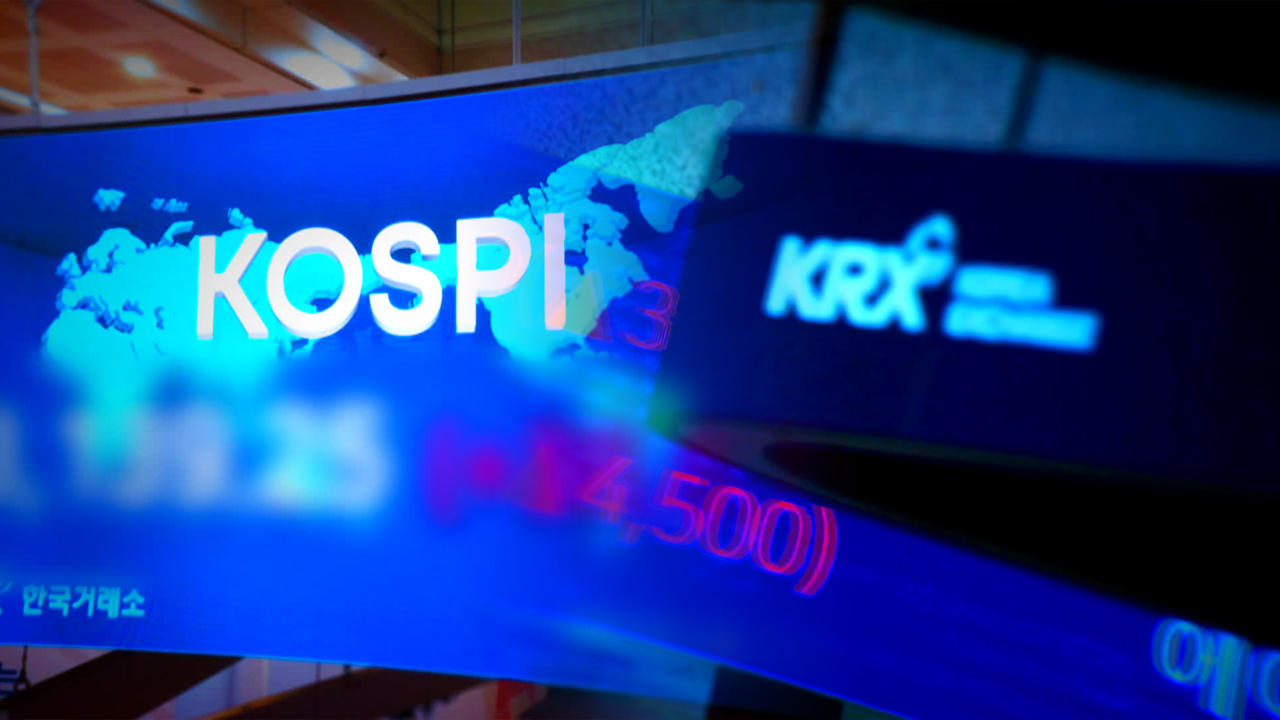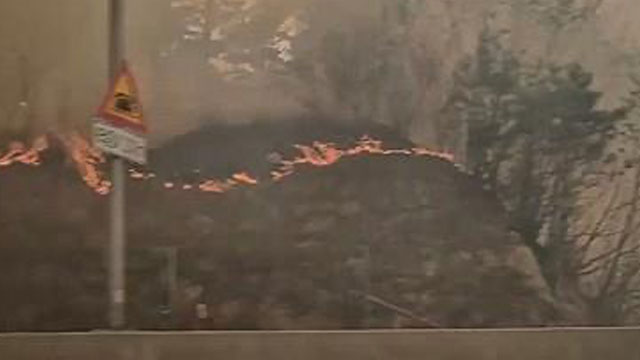[Anchor]
One of the reasons our stock market is undervalued is that it is difficult to eliminate so-called zombie companies.
From now on, delisting, or exit, will become easier than it is now.
About 200 of the currently listed companies could be affected.
This is reporter Song Su-jin.
[Report]
This was once a company listed on the KOSDAQ.
Despite a deficit of over 10 billion won, violations of accounting disclosure, and allegations of embezzlement and breach of trust by the largest shareholder, it took about three years for the company to be delisted.
[Shareholder of the company/From KBS documentary 'KOSDAQ Doodlebug': "In a way, it's just allowing crimes to happen. It's an act that harms our country's economy."]
In the Korean stock market, going public is easy, but exiting is difficult.
This becomes clear when compared to the United States.
In the last five years, the number of listed companies in Korea has increased by over 17%, while in the U.S., despite being the world's largest market, it has only increased by about 3%.
This is because there are just as many exits as there are listings.
If companies that should be kicked out hold on, the investment funds tied up there cannot flow to quality companies.
The financial authorities have decided to make delisting easier by changing the exit requirements.
First, they will tighten the lower limit for market capitalization for delisting.
Starting next year, companies on the KOSPI that do not exceed a market cap of 20 billion won will be subject to delisting, and this will gradually increase to 50 billion won by 2028.
The requirements for accounting audits will also be strengthened.
If a company receives an unfavorable audit opinion for two consecutive years, it can be immediately delisted.
This will be applied starting in the second half of this year.
[Kim Byeong-hwan/Chairman of the Financial Services Commission: "We will gradually raise the market capitalization and revenue requirements necessary for delisting to a practical level and significantly reduce the delisting review process."]
According to the final criteria that will be strengthened sequentially, about 200 out of the 2,400 listed companies in Korea could be subject to delisting.
This is KBS News, Song Su-jin.
One of the reasons our stock market is undervalued is that it is difficult to eliminate so-called zombie companies.
From now on, delisting, or exit, will become easier than it is now.
About 200 of the currently listed companies could be affected.
This is reporter Song Su-jin.
[Report]
This was once a company listed on the KOSDAQ.
Despite a deficit of over 10 billion won, violations of accounting disclosure, and allegations of embezzlement and breach of trust by the largest shareholder, it took about three years for the company to be delisted.
[Shareholder of the company/From KBS documentary 'KOSDAQ Doodlebug': "In a way, it's just allowing crimes to happen. It's an act that harms our country's economy."]
In the Korean stock market, going public is easy, but exiting is difficult.
This becomes clear when compared to the United States.
In the last five years, the number of listed companies in Korea has increased by over 17%, while in the U.S., despite being the world's largest market, it has only increased by about 3%.
This is because there are just as many exits as there are listings.
If companies that should be kicked out hold on, the investment funds tied up there cannot flow to quality companies.
The financial authorities have decided to make delisting easier by changing the exit requirements.
First, they will tighten the lower limit for market capitalization for delisting.
Starting next year, companies on the KOSPI that do not exceed a market cap of 20 billion won will be subject to delisting, and this will gradually increase to 50 billion won by 2028.
The requirements for accounting audits will also be strengthened.
If a company receives an unfavorable audit opinion for two consecutive years, it can be immediately delisted.
This will be applied starting in the second half of this year.
[Kim Byeong-hwan/Chairman of the Financial Services Commission: "We will gradually raise the market capitalization and revenue requirements necessary for delisting to a practical level and significantly reduce the delisting review process."]
According to the final criteria that will be strengthened sequentially, about 200 out of the 2,400 listed companies in Korea could be subject to delisting.
This is KBS News, Song Su-jin.
■ 제보하기
▷ 카카오톡 : 'KBS제보' 검색, 채널 추가
▷ 전화 : 02-781-1234, 4444
▷ 이메일 : kbs1234@kbs.co.kr
▷ 유튜브, 네이버, 카카오에서도 KBS뉴스를 구독해주세요!
- Zombie companies to be delisted
-
- 입력 2025-01-22 00:09:45

[Anchor]
One of the reasons our stock market is undervalued is that it is difficult to eliminate so-called zombie companies.
From now on, delisting, or exit, will become easier than it is now.
About 200 of the currently listed companies could be affected.
This is reporter Song Su-jin.
[Report]
This was once a company listed on the KOSDAQ.
Despite a deficit of over 10 billion won, violations of accounting disclosure, and allegations of embezzlement and breach of trust by the largest shareholder, it took about three years for the company to be delisted.
[Shareholder of the company/From KBS documentary 'KOSDAQ Doodlebug': "In a way, it's just allowing crimes to happen. It's an act that harms our country's economy."]
In the Korean stock market, going public is easy, but exiting is difficult.
This becomes clear when compared to the United States.
In the last five years, the number of listed companies in Korea has increased by over 17%, while in the U.S., despite being the world's largest market, it has only increased by about 3%.
This is because there are just as many exits as there are listings.
If companies that should be kicked out hold on, the investment funds tied up there cannot flow to quality companies.
The financial authorities have decided to make delisting easier by changing the exit requirements.
First, they will tighten the lower limit for market capitalization for delisting.
Starting next year, companies on the KOSPI that do not exceed a market cap of 20 billion won will be subject to delisting, and this will gradually increase to 50 billion won by 2028.
The requirements for accounting audits will also be strengthened.
If a company receives an unfavorable audit opinion for two consecutive years, it can be immediately delisted.
This will be applied starting in the second half of this year.
[Kim Byeong-hwan/Chairman of the Financial Services Commission: "We will gradually raise the market capitalization and revenue requirements necessary for delisting to a practical level and significantly reduce the delisting review process."]
According to the final criteria that will be strengthened sequentially, about 200 out of the 2,400 listed companies in Korea could be subject to delisting.
This is KBS News, Song Su-jin.
One of the reasons our stock market is undervalued is that it is difficult to eliminate so-called zombie companies.
From now on, delisting, or exit, will become easier than it is now.
About 200 of the currently listed companies could be affected.
This is reporter Song Su-jin.
[Report]
This was once a company listed on the KOSDAQ.
Despite a deficit of over 10 billion won, violations of accounting disclosure, and allegations of embezzlement and breach of trust by the largest shareholder, it took about three years for the company to be delisted.
[Shareholder of the company/From KBS documentary 'KOSDAQ Doodlebug': "In a way, it's just allowing crimes to happen. It's an act that harms our country's economy."]
In the Korean stock market, going public is easy, but exiting is difficult.
This becomes clear when compared to the United States.
In the last five years, the number of listed companies in Korea has increased by over 17%, while in the U.S., despite being the world's largest market, it has only increased by about 3%.
This is because there are just as many exits as there are listings.
If companies that should be kicked out hold on, the investment funds tied up there cannot flow to quality companies.
The financial authorities have decided to make delisting easier by changing the exit requirements.
First, they will tighten the lower limit for market capitalization for delisting.
Starting next year, companies on the KOSPI that do not exceed a market cap of 20 billion won will be subject to delisting, and this will gradually increase to 50 billion won by 2028.
The requirements for accounting audits will also be strengthened.
If a company receives an unfavorable audit opinion for two consecutive years, it can be immediately delisted.
This will be applied starting in the second half of this year.
[Kim Byeong-hwan/Chairman of the Financial Services Commission: "We will gradually raise the market capitalization and revenue requirements necessary for delisting to a practical level and significantly reduce the delisting review process."]
According to the final criteria that will be strengthened sequentially, about 200 out of the 2,400 listed companies in Korea could be subject to delisting.
This is KBS News, Song Su-jin.
이 기사가 좋으셨다면
-
좋아요
0
-
응원해요
0
-
후속 원해요
0











![[속보] 이재명, 민주당 호남 경선서 88.69%로 1위…충청보다 득표율 높아](/data/layer/904/2025/04/20250426_yKnEKN.jpg)




이 기사에 대한 의견을 남겨주세요.